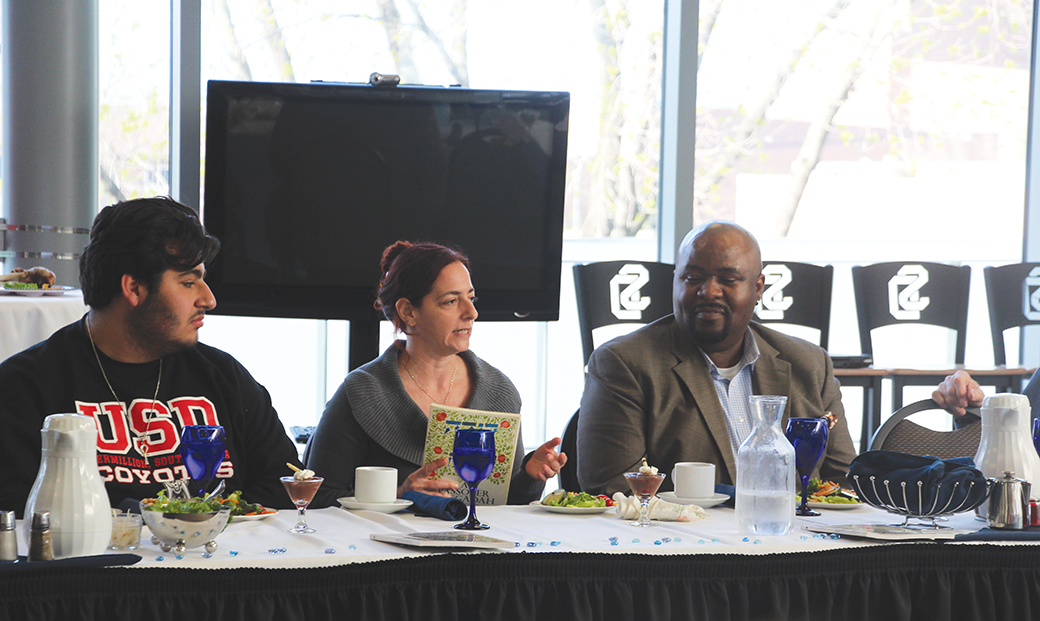
Diversity Center hosts Passover Seder dinner, hopes to immerse students in new cultures
The Center for Diversity and Community hosted a Passover Seder dinner Monday, the second of its kind at USD.
The Passover is the retelling of the exodus of Jewish people out of bondage and slavery in Egypt. Each food eaten during the dinner is symbolic and important to the story.
The dinner allows celebrators to physically remember the experience of being without food, as explained by theater assistant professor and host of the event, Chaya Gordon-Bland.
Around 30 students and faculty attended the event, which had seating available for 40 people.
“For the CDC hosting it, it’s an opportunity for us to gain cultural awareness of Jewish culture and Jewish traditions,” said Lamont Sellers, director of the CDC. “And for us to celebrate the religious traditions as well as the diversity we have on our campus.”
Gordon-Bland wanted this event to be a teaching experience for those unfamiliar with the holiday.
“For myself, as a representative of a very small Jewish community in South Dakota, it’s extremely significant to have our culture to be part of the landscape of the university and have an opportunity to share in the cultural and rituals and educate people about our little corner of the world,” Gordon-Bland said.
An eight-day celebration, the Passover started at sundown last Friday.
Aramark prepared the food for the event, which Gordon-Bland said is “the most important part” of the Passover celebration, given the food’s deep, symbolic nature.
“The foods you have during the ceremonial meal are very specific,” Gordon-Bland said. “The planning of the food is the main part of the event, making sure you have all of the correct foods.”
At the dinner, guests also have specific ways and orders in which they eat the foods. One tradition includes not eating wheat flour products, because during the exodus story, the Jewish people were fleeing quickly and didn’t have time for bread to rise, so instead matzo, a wafer cracker, is eaten.
During the ceremony, Gordon-Bland read from the Haggadah, the book that retells the story of the exodus. To allow others to participate, Gordon-Bland also had volunteers read, both in Hebrew and English.![]()
The CDC has hosted many religious holiday events throughout the school year, in hopes to be more inclusive to all university populations, especially the “smaller” ones, Sellers said.
“To be able to offer this for Jewish students, faculty and staff, others in the community and even for us to be able to learn about it is a great opportunity for us as a community,” Sellers said.
The Passover Sedar will be kept as an annual event at the CDC, though more religious events will likely be added to the calendar in the coming years.
“We’re becoming more inclusive,” Sellers said. “We strive for inclusiveness on our campus as a part of who we are on campus and we want to show just that.”

